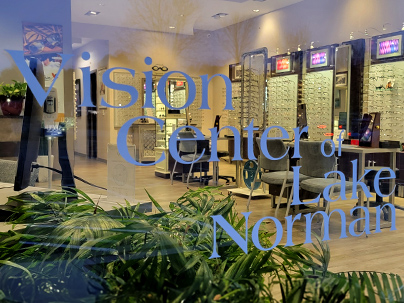The Link Between Menopause and Dry Eye
Blog:The Link Between Menopause and Dry Eye

Menopause is a natural part of life for women, but it can come with some unpleasant symptoms, including dry eye. Dry eye happens when your eyes don’t make enough tears or the right kind of tears. This can cause itching, burning, redness, and a gritty feeling in your eyes. If left untreated, dry eye can affect your vision and damage the surface of your eyes. Women of all ages can develop dry eye, but menopause increases the risk. Learn why this is the case and how you can find relief from this common condition.
How does menopause cause dry eyes?
A few factors can contribute to dry eyes during menopause:
Hormonal changes
During menopause, your hormone levels, especially estrogen, drop. Estrogen plays a role in keeping your eyes moist. When these levels decrease, your eyes might not produce as many tears, leading to dry eyes.
Gland issues
Menopause can also affect the glands in your eyelids that produce the oily part of your tears. This oil helps prevent your tears from evaporating too quickly. When these glands don’t work properly, your tears can dry up faster, causing dry eye symptoms.
More inflammation
Menopause can increase inflammation in your body, including your eyes. This inflammation can make dry eyes worse and harder to deal with.
Dry eye symptoms during menopause
Here are some signs that you may be suffering from dry eyes:
Redness and irritation: Your eyes may frequently look red and feel irritated.
A burning sensation: You might feel a constant burning or stinging in your eyes.
Excessive tearing: Strangely, having dry eyes can sometimes make your eyes water excessively as they try to compensate for the dryness.
Blurry vision: You might notice your vision getting blurry, especially after reading or using the computer.
Sensitivity to light: Bright lights might start to bother you more than before.
How to treat dry eyes during menopause
As women age and go through menopause-related changes in their bodies, it becomes increasingly important to prioritize their overall health and well-being. This includes paying attention to their eye health and seeking proper care when experiencing symptoms like dry eye. Regular visits to our eye doctor for comprehensive eye exams can help monitor any changes in your eye health and ensure you get treatment when you need it.
If you’re suffering from dry eye, our dry eye specialists in Newton and Morrisville may recommend prescription eye drops, lifestyle changes, or eye supplements to support your eye and overall health. We also provided advanced treatments such as OptiLight IPL (intense pulsed light) therapy and low level light therapy. These innovative treatments can help reduce inflammation and improve the function of your tear glands, offering significant relief for dry eye symptoms.
Dry eye during menopause doesn’t have to be a daily struggle. If you are experiencing dry eye symptoms or have concerns about how menopause may be affecting your eyesight, we’re here to help you find the right treatment for your needs. Schedule an appointment at the Vision Center of Lake Norman in Mooresville or Lifetime Eyecare in Newton today.


